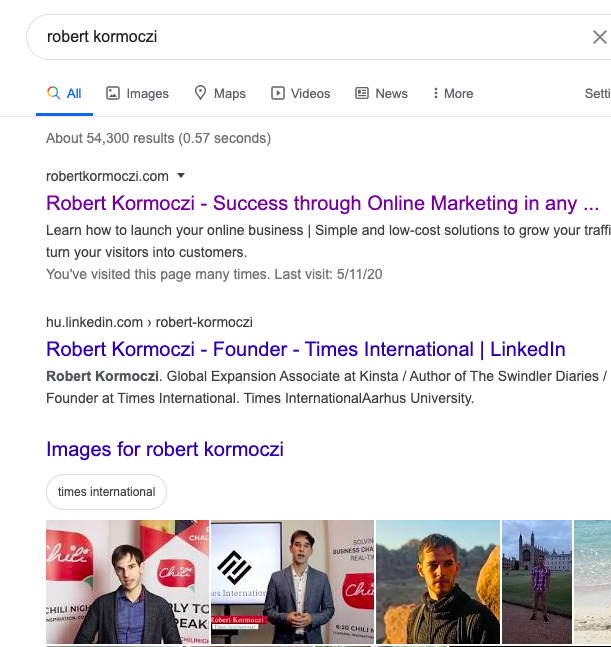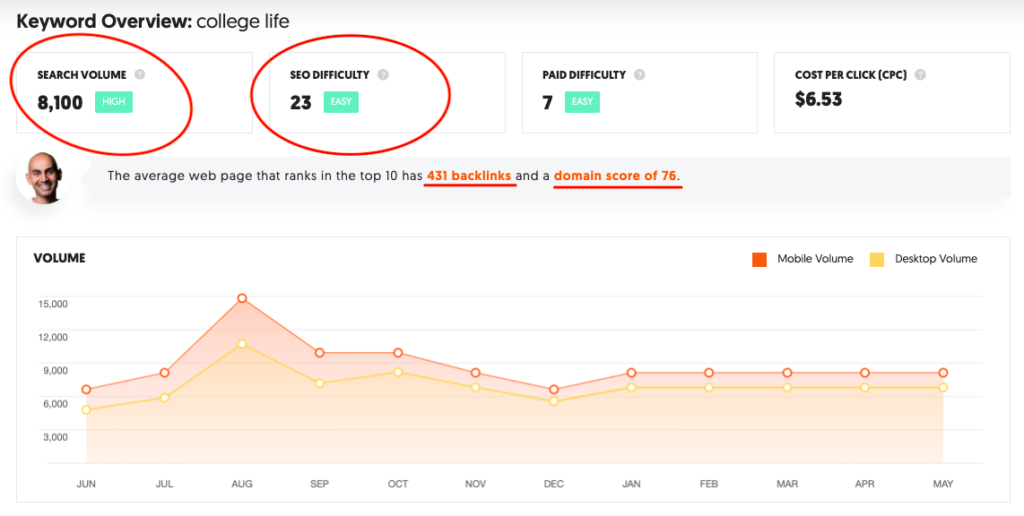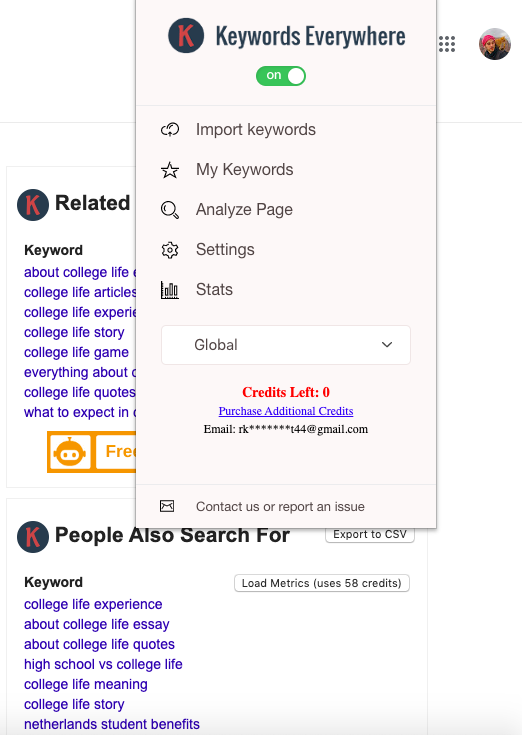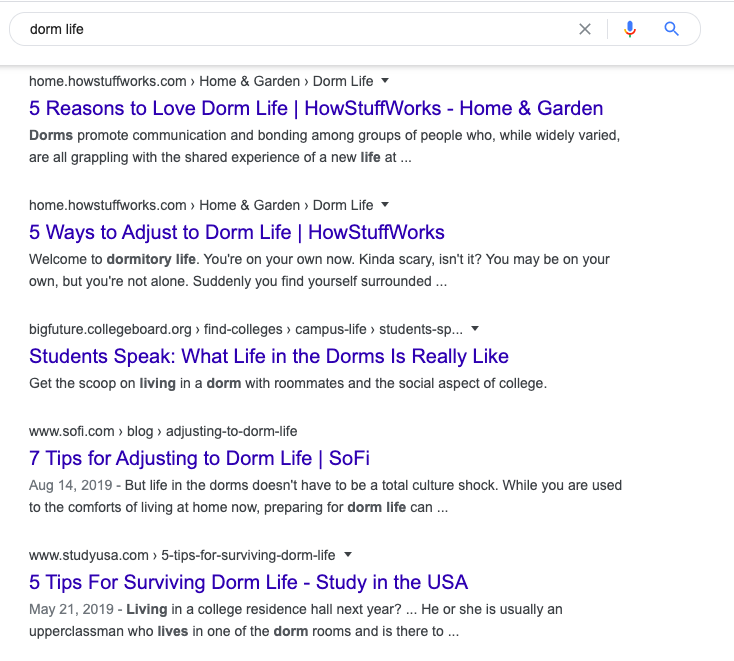Before I talk about the exact steps to find keywords for generating traffic to your website or articles, let’s briefly cover what keyword research is and why it’s so goddamn important.
What Is a Keyword and why should you research it?
Researching a keyword is the act of finding and getting specific words to target an audience through an article you publish and want people to find on Google.
This is done using a number of free and/or paid tools that show you what people are searching for on Google and other search engines.
Suggested in-depth guides: Google Search Console and Bing Webmaster Tools.
The quality of your keywords is the difference between a successful article or one that nobody reads. The keywords you pick will determine your contents’ performance.
It is keywords that help me appear on Google when someone types my name into search or other terms associated with the content I have published.

Let’s see how it is done.
So How Important are Keywords?
Very important! SEO can be complex at first, but it boils down to four fundamental points:
- Keyword Research
- Content Marketing
- Link building
- Psychological targeting
Of those four, researching keywords is the most important. (Which is why I’ve highlighted it so many times.)
Why? Because you can create the best article and build incredible links that let your website or article show up on the first page of Google. This is awesome in terms of business growth or revenue if you target the right keywords.
For example, let’s say you want to write an article “how to be happier“, so you can show up on Google’s first page and help people live a more fulfilling life. You think you have a good keyword to target and write amazing content, build links to it through guest posting and email outreach, and end up… well nowhere.
Your visitors just don’t seem to show up.
That’s because you didn’t properly research your keyword ahead of time. You may have found a keyword, but finding a keyword and doing keyword research are very different things. This is a huge challenge for all newbie bloggers, online business leaders or content creators.
Properly researching a keyword means understanding its potential, how competitive it is, and even the exact kind of content you need to create to be able to rank for it.
In a nutshell: Proper keyword research can be the difference between a wildly successful website that makes your online business tons of money and a complete waste of time.
Search Volume and Long Tail Keywords
The first concept to understand about keywords is search volume. You can use free search tools for volume like Ubersuggest. Here I wanted to write about “college life” and wanted to explore how many people search for this term every month.

This is what most people look at when they first start researching keywords. While this might a common start, there are some things we need to look at.
A high search volume is very deceiving in two ways:
- High volume does not mean, high Conversion rates. The search volume for something has very little to do with how much you can actually earn from that traffic. For example, if I were to rank for a keywords “college life” with 1000 monthly visitors with a purpose to sell pens, it still might not work. Why? Because people are just looking for information and aren’t ready to buy my pens (the solution: you’d need to define the search intent!)
- Just because 8100 people search for a keyword doesn’t mean all 8100 people actually click on a result. Take a look at the keyword “How old is Trump”, for example—it gets 121000 searches per month, but only 1,528 of those people, actually click on anything. That’s because people get the answer right on Google and don’t need to click through to find it.

Keyword Search Volume to Click-Ratio

Bad keyword example
On the other hand, a low search volume doesn’t mean a keyword is bad or that the number you see is the number of visitors you’ll get. It is definitely a good indicator. But the truth is that all pages that rank on Google for one keyword also rank for dozens of other keywords.
For example, take a look at this post a volunteer wrote for Times International. He was targeting the keyword “survive dorm life”, which gets around 720 searches per month according to Ubersuggest. But as you can see in the screenshot below, it also ranks for 170 other keyword ideas and even ranks on page one for “dorm life” at 720 searches per month in the US alone!

Ubersuggest Keywords
While search volume is an important metric, you shouldn’t base your target keywords solely on how many people are searching for it every month. Only if your sole focus is on brand awareness, traffic growth with advertising revenue on a per-impression basis).
How is Keyword Research done? (Step-by-Step Guide)
Alright, this is where the real journey begins. Now that you have understood the important metrics behind keyword research, it’s time to actually find your very own keywords and get it ranking on Google to get a dozen readers/visitors! There are four steps I follow when I’m doing keyword research for a new article:
- Imagine an audience
- Find keyword ideas
- Check keyword difficulty and search volume
- Determine search intent
Imagine an Audience
Think of it this way. Picture yourself in a university auditorium where you’re about to present your idea. Think of this moment and picture yourself in the center where you want to share something with the people sitting there. But imagine your audience is made up of people with the patience level of 8th graders with the attention span of a goldfish. You need to come up with a topic that will get them hooked.
Many internet users are impatient and want information fast and easy. You need to captivate your audience, make them stay. Give them something interesting to share!
Finding Keyword Ideas
Finding keyword ideas is the easy part. There are loads of tools that will spit out hundreds of ideas at the click of a button. It’s vetting them that takes effort, but we’ll get to that.
I would suggest using Keywords Everywhere, which is a FREE Chrome extension you can download and get many keyword ideas every time you type something into Google search.

Check Keyword Difficulty and Search Volume
Once you have come up with your keywords, its time to see which one would be the best. (I suggest you find at least 10 minimum. Once that is done, it’s time to see which are even worth pursuing based on keyword difficulty (KD) and search volume.
You must take your keywords and insert them into Ubersuggest to see, which one has the highest search volume and lowest SEO difficulty.
High search volume means that a lot of people search for those keywords.
Low SEO difficulty means that the competition is low and it is easier for you to rank better on Google.
If your website is new or doesn’t get a lot of traffic or backlinks, I would suggest an SEO score, not more than 20.
Determine Search Intent
At this point, you should have a pretty decent list of keywords with a difficulty you’re comfortable tackling and a search volume potential you’d be happy to capture. Now it’s time to figure out what people actually want when they search for these terms and whether or not it fits in with your marketing and revenue goals.
This part is as simple as Googling each keyword on your list and check out the top 5-10 results you get. Review their title and description, click on them to view the page, and check out the angle they took on the page.
Do they provide information? Are they sales pages? Maybe top 10 lists, reviews, guides, or tutorials like this article?
Why is this important? Because you can see what ranks in the top 10 searches for that term. So if I were to write about “dorm life” into Google, I could see that it is full of tips and ideas numbered between 5 to 7. So in order to outrank them, you must write an article with similar tips and ideas, but more detailed, useful or longer. This way you can appear on the first page an outrank the other articles.

But of course, you must inspect these websites’ SEO. Always bear in mind that if they have a lot of traffic and backlinks, it will be difficult to outrank them, especially if your website ranks low or fairly new.
Whatever the case, research your niche and crank out some content! 🙂

Robert is a part-time blogger and internet entrepreneur. Join Robert and thousands of other monthly readers to learn how to build and scale up the next-gen of online entrepreneurship. While running this blog, Robert is the founder of his media company, Times International, and a PR Team Lead at Lensa.
